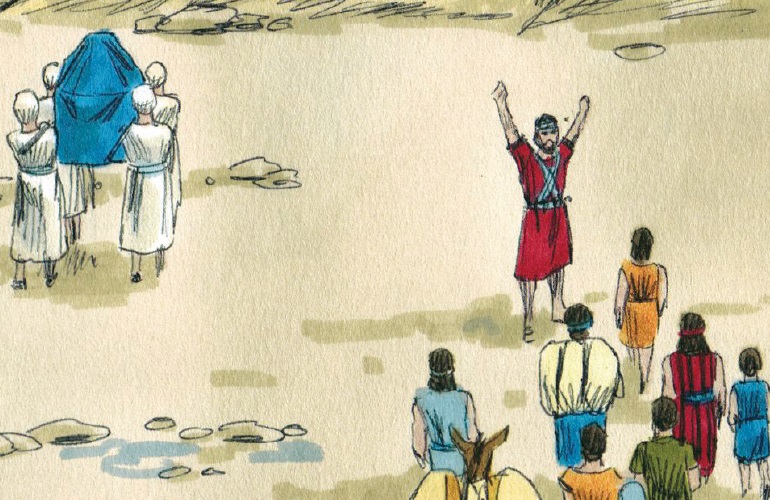What story will you share?
Reflecting on our Sunday Readings with Fr Christopher Wee, SJ
Mar 25, 2022

4th Sunday of Lent (C)
Readings: Joshua 5:9a, 10-12;
2 Corinthians 5:17-21;
Gospel: Luke 15:1-3, 11-32
I remember that particular Easter vigil evening when all of us were asked to gather outside the kindergarten classroom where there was a campfire. With a light for us to focus on amidst our dark surroundings, a little girl asked the then parish priest, the late Fr Joseph Reutens, “Why is this night different from all other nights?” It was such a simple question and yet, to all of us gathered there that evening, it gave meaning to why that night was so different and so life-giving. Personally, as I look back to that evening, I see a God who has given me everything, is always there for me, and waits for me each time I gave up on Him to go my own way.
The thought of that Easter vigil came to mind as I was reflecting on the passage from Joshua. It must have been such a relief for the Israelites after all those years of struggling and straying in the desert, to have finally arrived at the Promised Land. As they neared the river Jordan, at Gilgal, Joshua set up 12 stones there as a memorial. It was to give the parents that opportunity at every Passover gathering when their children asked about the stones. They would then tell The Story about how God had dried up the waters for Israel to safely cross the Jordan as God had done at the Red Sea. As the Israelite parents shared their God-story with their children, I wonder what God-story parents these days share with their children?
I suppose, to tell a story depends on how comfortable we first are with that story. Thus, to tell a story about God depends on how comfortable we are with God. When I read the parable of the Prodigal Son and his older brother, I wonder if they really know their Father. If the younger son had known his father and how much his father loved him, he would not have asked for his share of the property that he thought was his.
I thought of how we too have demanded things from God as though it is our right. If the older brother had known how much his father loved him, he would not have obeyed his father out of fear, hoping for his father’s love in return. I thought of how we too can be so caught up with the thought of sin and fasting and penances at Lent that we miss something more crucial.
The parable of the Prodigal Son is a wonderful parable, and as in all parables, they usually don’t do what we might expect. If we really pray it, even though we may like to think we already know the story, we might be surprised because there is a greater storyteller whose story and words are living and effective, (Heb. 4:12). He always has something to say to us. Our mistake is to think we already know what we want hear – that we are like the Prodigal Son or the older brother, and since it is Lent, we need to reconcile and repent.
To understand a parable, we might want to take note at where, when and how Jesus tells them. Our parable today comes in response to the Pharisees and scribes who criticise Jesus’ tendency to associate Himself too intimately with “sinners.” The parable did not ask for repentance but that we may see what the Father is really like, that we often like to think we know, which makes us like the scribes and Pharisees.
I remember a conversation with Fr Reutens. He asked me who decided our sin when we go for confession. I immediately said it was God. He corrected me saying that it is we ourselves who see and judge that it is a sin. When we are able to see how much God loves us, we cannot but want to reconcile with God. We need to look back and come to our senses as well, to see that we already have it all right before us instead of chasing what we believe is freedom and happiness. We need to hear again, “My son, you are with me always and all I have is yours.” We may have left the Father many times but in the Father's heart, we are always His.
What story would you tell of God? For the Israelites, they were probably surprised that despite their many bitter complaints, against God, their golden calves, God still journeyed with them and brought them to the Promised Land. Indeed, how could they forget but wait for the opportunity to tell their children each time they saw the 12 stones at every Passover.
For us, there is every opportunity as well, each time we come for Mass, for there the Father runs to embrace us, and there we continue to see, despite our prodigal ways, that it is actually the prodigal Father who gives us everything, including His only Son, just to see us live. As Paul writes, “it is all God’s work.”
And we can never stop telling God’s story.
(Fr Christopher Wee, SJ is the local superior for the Jesuit community in Malaysia. He is currently based in Petaling Jaya.)







Total Comments:0